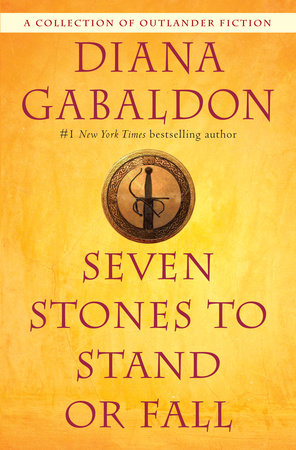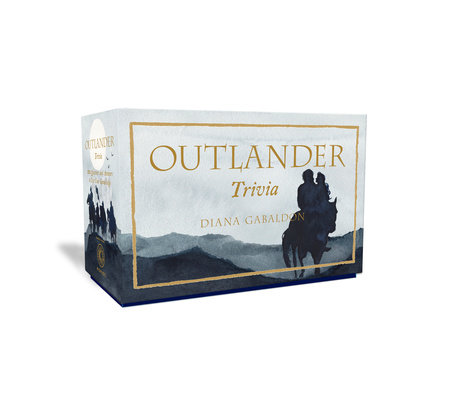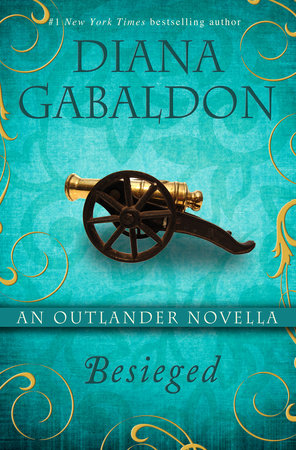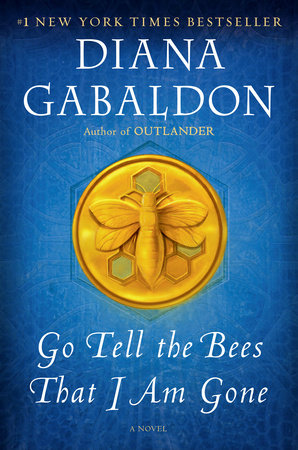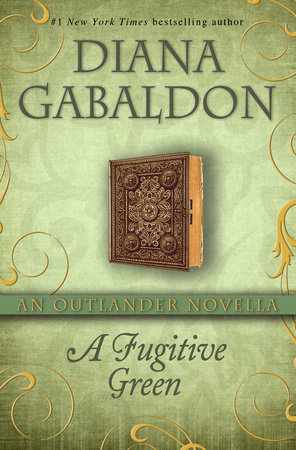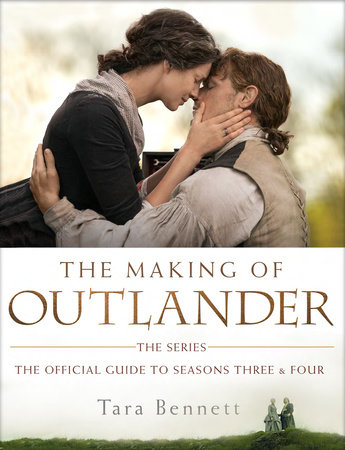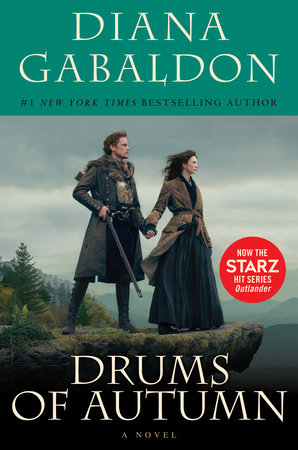Excerpt
Seven Stones to Stand or Fall
Jamaica
Early May 1762
Lord John Grey dipped a finger gingerly into the little stone pot, withdrew it, glistening, and sniffed cautiously.
“Jesus!”
“Yes, me lord. That’s what I said.” His valet, Tom Byrd, face carefully averted, put the lid back on the pot. “Was you to rub yourself with
that stuff, you’d be drawing flies in their hundreds, same as if you were summat that was dead.
Long dead,” he added, and muffled the pot in a napkin for additional protection.
“Well, in justice,” Grey said dubiously, “I suppose the whale
is long dead.” He looked at the far wall of his office. There were a number of flies resting along the wainscoting, as usual, fat and black as currants against the white plaster. Sure enough, a couple of them had already risen into the air, circling lazily toward the pot of whale oil. “Where did you get that stuff?”
“The owner of the Moor’s Head keeps a keg of it; he burns it in his lamps—cheaper nor even tallow candles, he says, let alone proper wax ones.”
“Ah. I daresay.” Given the usual smell of the Moor’s Head on a busy night, nobody would notice the stink of whale oil above the symphony of other reeks.
“Easier to come by on Jamaica than bear grease, I reckon,” Tom remarked, picking up the pot. “D’you want me to try it with the mint, me lord? It
might help,” he added, with a dubious wrinkle of the nose.
Tom had automatically picked up the oily rag that lived on the corner of Grey’s desk and, with a dexterous flick, snapped a fat fly out of the air and into oblivion.
“Dead whale garnished with mint? That should cause my blood to be especially attractive to the more discriminating biting insects in Charles Town—to say nothing of Canada.” Jamaican flies were a nuisance but seldom carnivorous, and the sea breeze and muslin window screening kept most mosquitoes at bay. The swamps of coastal America, though . . . and the deep Canadian woods, his ultimate destination . . .
“No,” Grey said reluctantly, scratching his neck at the mere thought of Canadian deer flies. “I can’t attend Mr. Mullryne’s celebration of his new plantation house basted in whale oil. Perhaps we can get bear grease in South Carolina. Meanwhile . . . sweet oil, perhaps?”
Tom shook his head decidedly.
“No, me lord. Azeel says sweet oil draws spiders. They come and lick it off your skin whilst you’re asleep.”
Lord John and his valet shuddered simultaneously, recollecting last week’s experience with a banana spider—a creature with a leg span the size of a child’s hand—that had burst unexpectedly out of a ripe banana, followed by what appeared at the time to be several hundred small offspring, at a garden party given by Grey to mark his departure from the island and to welcome the Honorable Mr. Houghton Braythwaite, his successor as governor.
“I thought he’d have an apoplexy on the spot,” Grey said, lips twitching.
“Likely wishes he had.”
Grey looked at Tom, Tom at Grey, and they burst into suffocated snorts of laughter at the memory of the Honorable Mr. Braythwaite’s face on this occasion.
“Come, come,” Lord John said, getting himself under control. “This will never do. Have you—”
The rumble of a carriage coming up the gravel drive of King’s House interrupted him.
“Oh, God, is that him now?” Grey glanced guiltily round at the disarray of his office: A gaping half-packed portmanteau lolled in the corner, and the desk was strewn with scattered documents and the remnants of lunch, in no condition to be viewed by the man who would inherit it tomorrow. “Run out and distract him, will you, Tom? Take him to the receiving room and pour rum into him. I’ll come and fetch him as soon as I’ve done . . . something . . . about this.” He waved a hand at the debris, and Tom obligingly vanished.
Grey picked up the oiled rag and disposed of an unwary fly, then seized a plate scattered with bread crusts, blobs of custard, and fruit peelings and decanted this out of the window into the garden beneath. Thrusting the empty plate out of sight under the desk, he began hurriedly to gather papers into piles but was interrupted almost at once by the reappearance of Tom, looking excited.
“Me lord! It’s General Stanley!”
“Who?” Grey said blankly. His mind, occupied with the details of imminent escape, refused to deal with anything that might interfere with said escape, but “Stanley” did ring a distant, small bell.
“Might be as he’s your mother’s husband, me lord?” Tom said, with a becoming diffidence.
“Oh . . . that General Stanley. Why didn’t you say so?” John hastily grabbed his coat from its hook and shrugged into it, brushing crumbs off his waistcoat as he did so. “Show him in, by all means!”
John in fact liked his mother’s third husband—she having been twice widowed when she acquired the general four years before—though any military intrusion at this point was something to be regarded warily.
Wariness was, as usual, justified. The General Stanley who eventually appeared was not the bluff, jaunty, self-confident man last seen in his mother’s company. This General Stanley was hobbling with a stick, his right foot bound up in an immense bandage, and his face gray with pain, effort . . . and profound anxiety.
“General!” John seized him by the arm before he could fall over and guided him to the nearest chair, hastily removing a pile of maps from it. “Do sit down, please—Tom, would you . . . ?”
“Just here, me lord.” Tom had dug Grey’s flask out of the open traveling bag with commendable promptitude and now thrust it into General Stanley’s hand.
The general accepted this without question and drank deeply.
“Dear Lord,” he said, setting the flask on his knee and breathing heavily. “I thought I shouldn’t make it from the landing.” He took another drink, somewhat more slowly, eyes closed.
“More brandy, Tom, if you please?” Grey said, watching this. Tom gave the general an assessing look, not sure whether he might die before more brandy could be fetched, but decided to bet on the general’s survival and disappeared in search of sustenance.
“God.” The general looked a good deal short of human but distinctly better than he had. He nodded thanks to John and handed back the empty flask with a trembling hand. “The doctor says I mustn’t drink wine—apparently it’s bad for the gout—but I don’t recall his mentioning brandy.”
“Good,” John said, glancing at the bandaged foot. “Did he say anything about rum?”
“Not a word.”
“Excellent. I’m down to my last bottle of French brandy, but we’ve got quite a lot of rum.”
“Bring the cask.” The general was beginning to show a tinge of color and, at this point, began to be cognizant of his surroundings. “You were packing to leave?”
“I am packing to leave, yes,” John said, the feeling of wariness developing small, prickling feet inside his stomach. “I’m meant to sail tonight, for Charles Town.”
“Thank God. I was afraid I shouldn’t make it in time.” The general breathed audibly for a moment, then gathered himself. “It’s your mother.”
“
What’s my mother?” The wariness turned instantly to a flare of alarm. “What’s happened to her?”
“Nothing, yet. Or at least I sincerely hope not.” The general patted the air in a vague gesture of reassurance that failed singularly to reassure.
“Where the devil is she? And what in God’s name is she up to now?” Grey spoke with more heat than filial respect, but panic made him edgy.
“She’s in Havana,” General Stanley said. “Minding your cousin Olivia.”
This seemed like a moderately respectable thing for an elderly lady to be doing, and Grey relaxed slightly. But only slightly.
“Is she ill?” he asked.
“I hope not. She said in her last letter that there was an outbreak of some sort of ague in the city, but she herself was in good health.”
“Fine.” Tom had come back with the brandy bottle, and John poured himself a small glass. “I trust she’s enjoying the weather.” He raised an eyebrow at his stepfather, who sighed deeply and put his hands on his knees.
“I’m sure she is. The problem, my boy, is that the British Navy is on its way to lay siege to the city of Havana, and I really think it would be a good idea if your mother wasn’t in the city when they get there.”
For a moment, John stood frozen, glass in hand, mouth open, and his brain so congested with questions that he was unable to articulate any of them. At last, he gulped the remains of his drink, coughed, and said mildly, “Oh, I see. How does my mother come to be in Havana to start with?”
The general leaned back and let out a long breath.
“It’s all the fault of that Stubbs fellow.”
“Stubbs . . . ?” It sounded vaguely familiar, but stunned as he was, Grey couldn’t think why.
“You know, chap who married your cousin Olivia. Looks like a builder’s brick. What’s his Christian name . . . Matthew? No, Malcolm, that’s it. Malcolm Stubbs.”
Grey reached for the brandy bottle, but Tom was already pouring a fresh glass, which he thrust into his employer’s hand. He carefully avoided meeting Grey’s eye.
“Malcolm Stubbs.” Grey sipped brandy, to give himself time to think.
“Yes, of course. I . . . take it that he’s quite recovered, then?” On one level, this was good news; Malcolm Stubbs had lost a foot and part of the adjoining leg to a cannonball at the Battle of Quebec, more than two years before. By good luck, Grey had fallen over him on the field and had the presence of mind to use his belt as a tourniquet, thus preventing Stubbs from bleeding to death. He vividly recalled the splintered bone protruding from the remnants of Malcolm’s shin, and the hot, wet smell of blood and shit, steaming in the cold air. He took a deeper swallow of brandy.
“Yes, quite. Got an artificial foot, gets around quite well—even rides.”
“Good for him,” Grey said, rather shortly. There were a few other things he recalled about Malcolm Stubbs. “Is
he in Havana?”
The general looked surprised.
“Yes, didn’t I say? He’s a diplomat of some kind now—sent to Havana last September.”
“A diplomat,” Grey repeated. “Well, well.” Stubbs probably did diplomacy well—given his demonstrated skills at lying, deceit, and dishonor. . . .
“He wanted his wife and children to join him in Havana, once he had a suitable establishment, so—”
“Children? He had
only the one son when I last saw him.” Only the one legitimate son, he added silently.
“Two, now—Olivia gave birth to a daughter two years ago; lovely child called Charlotte.”
“How nice.” His memory of the birth of Olivia’s first child, Cromwell, was nearly as horrifyingly vivid as his memories of the Battle of Quebec, if for somewhat different reasons. Both had involved blood and shit, though.
“But Mother—”
“Your mother offered to accompany Olivia, to help with the children. Olivia’s expecting again, and a long sea voyage . . .”
“Again?” Well, it wasn’t as though Grey didn’t know what Stubbs’s attitude toward sex was . . . and at least the man was doing it with his wife. John kept his temper with some difficulty, but the general didn’t notice, continuing with his explanations.
“You see, I was meant to be sailing to Savannah in the spring—now, I mean—to advise a Colonel Folliott, who’s raising a local militia to assist the governor, and your mother was going to come with me. So it seemed reasonable that she go ahead with Olivia and help her to get settled, and I would arrange for her to join me when I came.”
“Very sensible,” John said. “That’s Mother, then. And where does the British Navy come into it?”
“Admiral Holmes, me lord,” Tom said, with a faint air of reproach. “He told you last week, when you had him to dinner. He said the Duke of Albemarle was a-coming to take Martinique away from the frogs and then see to Cuba.”
“Oh. Ah.”
Grey recalled the dinner, which had featured a remarkable dish that he had realized—too late—was the innards of pickled sea urchins, mixed with bits of raw fish and sea lettuce that had been cured with orange juice. In his desire to keep his guests—all recently arrived from London, and all lamenting the dearth of roast beef and potatoes in the Indies—from sharing his realization, he had called for lavish and repeated applications of a native palm liquor. This had been very effective; by the second glass, they wouldn’t have known they were eating whale turds, should his adventurous cook have taken it into his head to serve that as a second course. Consequently, though, his own memories of the occasion were somewhat dim.
“He didn’t say Albemarle was proposing to lay siege to the place, did he?”
“No, me lord, but that must’ve been his meaning, don’t you think?”
“God knows,” said John, who knew nothing about Cuba, Havana, or the Duke of Albemarle. “Or possibly you do, sir?” He turned politely to General Stanley, who was beginning to look better, under the influence of relief and brandy. The general nodded.
“I wouldn’t,” he admitted frankly, “save that I shared Albemarle’s table aboard his flagship for six weeks. What I don’t presently know about the harbor at Havana probably isn’t worth knowing, but I take no credit for the acquisition of that knowledge.”
The general had learned of Albemarle’s expedition only the night before the fleet sailed, when a message from the War Office had reached him, ordering him aboard.
“At that point, of course, the ship would reach Cuba long before any message I could send to your mother, so I went aboard at once—this”— he glowered at his bandaged foot—“ notwithstanding.”
“Quite.” John raised a hand in brief interruption and turned to his valet. “Tom,—run—and I do mean
run—to Admiral Holmes’s residence and ask him to call upon me as soon as is convenient. And by convenient, I mean—”
“Right now. Yes, me lord.”
“Thank you, Tom.”
Despite the brandy, Grey’s brain had finally grasped the situation and was busy calculating what to do about it.
If the British Navy showed up in Havana Harbor and started shelling the place, it wasn’t merely physical danger threatening the Stubbs family and Lady Stanley, also known as the Dowager Duchess of Pardloe. All of them would likely become immediate hostages of Spain.
“The moment we got within sight of Martinique and joined Monckton’s forces there, I . . . er . . . requisitioned a small cutter to bring me here, as quickly as possible.”
“Requisitioned, sir?” John said, smiling at the general’s tone.
“Well, I stole it, to be perfectly frank,” the general admitted. “I don’t imagine they’d bring me to a court-martial, at my age . . . and I bloody don’t care if they do.” He sat upright, gray-stubbled chin outthrust and a glint in his eye. “All I care about is Benedicta.”


